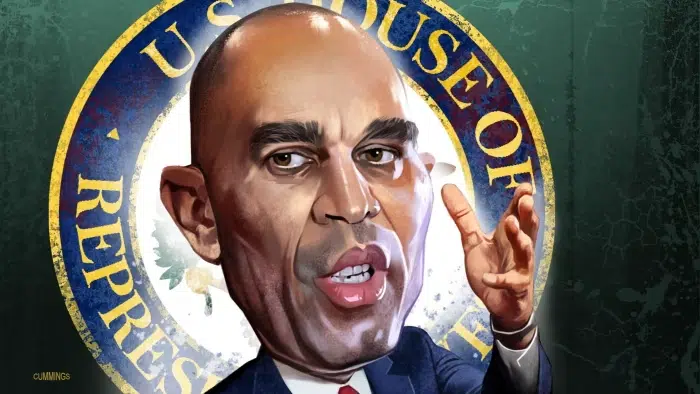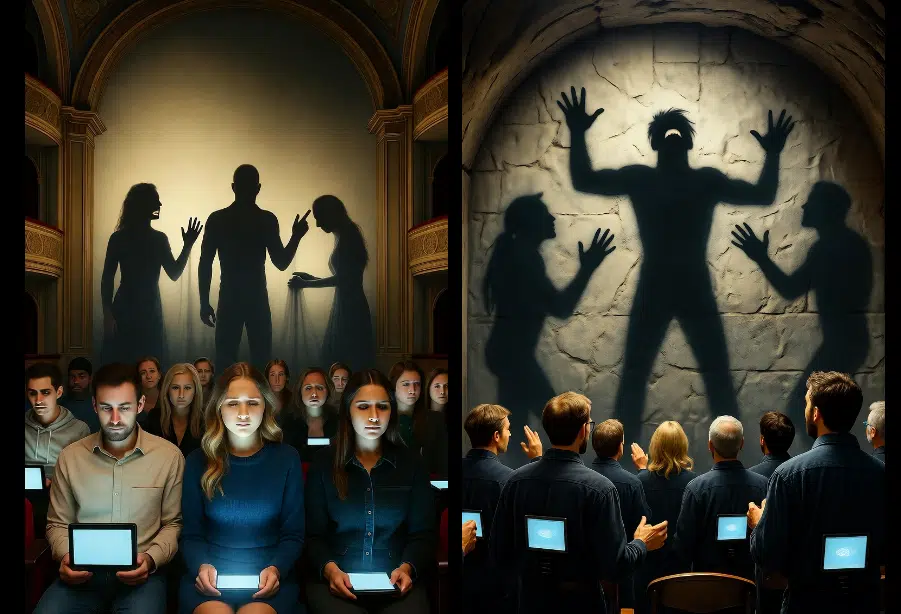
This One-Minute Video Is The Most Damning Thing About Our Culture You’ll Ever See
I’m single, and I’m probably not going to be fixing that anytime soon. Though I’d like to, at least in the abstract.
In fact, I always expected growing up that I’d be a dad and have a big family. I was an only child, and it felt like I missed something not having brothers and/or sisters growing up. I figured I’d make sure my kids had a different experience.
But then there were no kids. Nor was there a wife. I date all the time, when I have the time, but I haven’t met anybody I really liked enough to take the plunge with. When I was younger I had two serious relationships that at some point along the way resulted in engagements, but both times that didn’t take because it became obvious they weren’t a match. And things I learned from those made me realize how careful I needed to be if I didn’t want to end up like a lot of other guys I know.
Specifically, getting clobbered in a divorce. Having their wealth cut in half. Having their income grossly curtailed by paying child support. And being separated from their kids, who almost invariably would blame them for the disruption in their lives the divorce will cause, and having major long-term damage to those relationships it would take years to resolve, if ever.
You hear a whole lot about single moms, and how tough life is for them. I’m not here to tell you those stories aren’t true; in most cases they are. But you hear very little about the male side of that equation, other than the griping about “deadbeat dads” and the like.
The divorced guys I’ve known were mostly devastated by the split – maybe not so much from the now ex-wife; most of them were actually OK to have her out of their hair, but from the kids. Going from having his children in his household and under his sphere of authority and responsibility to having them be weekend guests in his new, smaller bachelor pad is a palpable, jagged, and unwanted change in a man’s life. It’s an unmistakable signal that he’s lost ground and that his future will be less than his recent past.
Maybe not professionally, but certainly personally. Particularly if he’s not wealthy. In most cases he goes from middle class to poor virtually overnight. And spends years attempting to rebuild, often unsuccessfully.
And most divorces – four out of five, actually – in America today are initiated by the female.
The way family law is set up is an incentive for female-driven divorce claims. Generally, the kids go with Mom, Dad pays child support, Mom gets the house and they split the household wealth in half.
All my life I’ve known this and all my adult life I’ve seen the toll it’s taken on friends who found, and lost, the wrong girl.
I won’t lie – aversion to having it happen to me is a very real reason why I tread very lightly into the dating pool. I’ve got to be head over heels about somebody just to have a semi-serious relationship because I know what’s very likely to happen at the end of the day.
Were it not for wanting to have kids at some point, I probably wouldn’t be interested in anything but “friends with benefits” at all. It’s not that I have a fear of commitment, it’s that I don’t have a lot of faith in what our culture will do to that commitment once it’s made. Not after all the stories I’ve heard and seen.
And that isn’t an acceptable attitude in a healthy society. I get it totally. I’m part of the problem. And I’m not alone. Marriage rates have absolutely cratered and they’re at an all-time low. Men are the ones reluctant to marry; that’s a cliche but it’s also borne out in the data.
The data also bear out that married men tend to be more successful. That presents a real conundrum, doesn’t it? Take the risk of getting destroyed by the family courts in the hope of finding marital nirvana? That’s sort of where we are.
But here’s the question: what kind of society generates a very reasonable aversion to the formation of nuclear families? I would argue “not a healthy one.” There’s an old legal axiom I’ve carried with me, and it’s “never enter a contract the other party is incentivized to break.”
Which is a real thing, and it essentially describes the way things are in our society and culture. Marriage is a contract with incentives, particularly for women, to break it.
I’ve known all this and not really talked about it much. I don’t like my attitude about this subject and it has certainly held me back in my romantic pursuits.
But a few days ago I stumbled into a discussion about this very issue, and it came from a YouTube video that popped a couple of weeks ago. In one minute, the speaker, Pearl Davis (here’s her Twitter), distills everything about why guys like me just can’t get motivated to settle down and have a family…
That’s exactly right.
For almost all of human history, or at least the history of human civilization in which the nuclear family served as a bedrock for society, a logical analysis of life for men would include marriage and children. But in 60 years since the advent of critical theory and feminism, that analysis has been blown apart and Davis has it completely correct – the downside of a relationship for a modern American man is so devastating, and worse, so likely, that a great many are simply choosing to opt out. And marriage as an institution is dying.
I’m not happy about being part of that phenomenon. And when one or more of the projects I’m working on – books I’ve written and am writing, or this site, or whatever else – pops and makes me independently wealthy, I’m guessing I’ll feel differently for all kinds of reasons.
But here’s the really unfortunate thing: a whole lot of men, particularly guys like me who come to the same place I’m in, will pretty comfortably accept the idea of operating as an independent actor. We’re comfortable alone. Maybe the right woman would enhance our lives, but maybe the juice isn’t worth the squeeze, and the way things are is fine. Perhaps we’ll find a hobby we can really sink into and enjoy, or perhaps we’ll immerse ourselves into a career. Something. Rich Cooper, for example, has built a little empire as an author and YouTuber off the exhortation to men to “chase excellence, not women.” Cooper isn’t telling men to go their own way; he’s saying that making a dent in the world as a man is more important than finding a wife, and guys who can pull that off will find themselves in demand with the women they’re interested in.
That’s true, and it’s good advice. Cooper has a huge following as a result, though women’s magazines and websites have excoriated him as a misogynist. He isn’t, but it wouldn’t matter if he was; he’s resonating with men because what he’s saying speaks to our nature. Men need accomplishments to feel self-worth. That’s why somebody else feminists hate, Jordan Peterson, has built such a following. Peterson preaches the embrace of responsibility, particularly by men, as the path to meaning in life.
Men can and do define themselves through professional success. In fact, it’s primarily how we define ourselves. Always has been.
But men and women are different, and women are significantly more relationship-oriented than men are. Put more simply, women need love and attention more than men do.
So what kind of society incentivizes women to alienate themselves from the one human relationship which is structured to provide for that need? When the effect of that incentive is to shrink the number of men interested in joining that relationship?
We’ve incentivized women to ignore marriage and instead to pursue careers. But the effect of that is that women are, as study after study shows, more miserable than ever. And, despite the fact that male rates of suicide, incarceration and drug abuse greatly outpace those of women, those studies now show that rates of female unhappiness and stress have now eclipsed those of men.
So this new setup in culture and family law which tells women they don’t need men at all and follows through on that message by inducing women to leave men aside…more negatively affects women than it does men.
What a catastrophic mess that is. Great job.
I get it that there are bad marriages. I’m not suggesting anybody stay in one – quite the contrary. I’ve lived my whole life averting involvement in a bad marriage, so I’m the last person suggesting people should have such a fate.
But I’ll close with this: before we started opening the door to things like no-fault divorce, the insistence on turning women into corporate automatons, and the other implements of family law which have brought us to where we are, why didn’t we as a society and a culture do more to improve the marriages in the first place? And where would we be if we had figured a way to do that?



